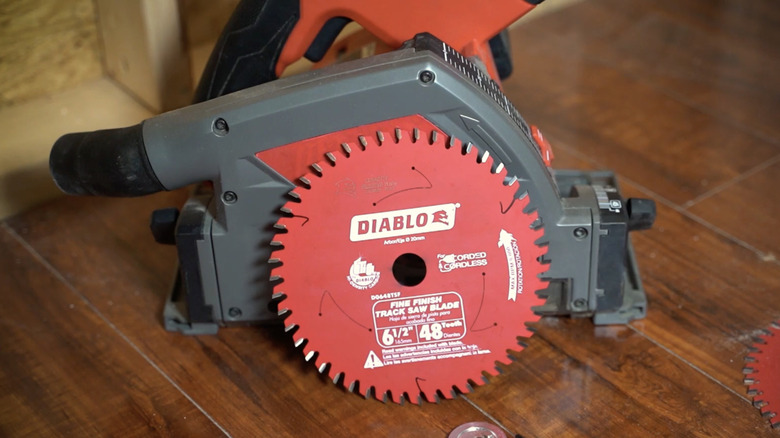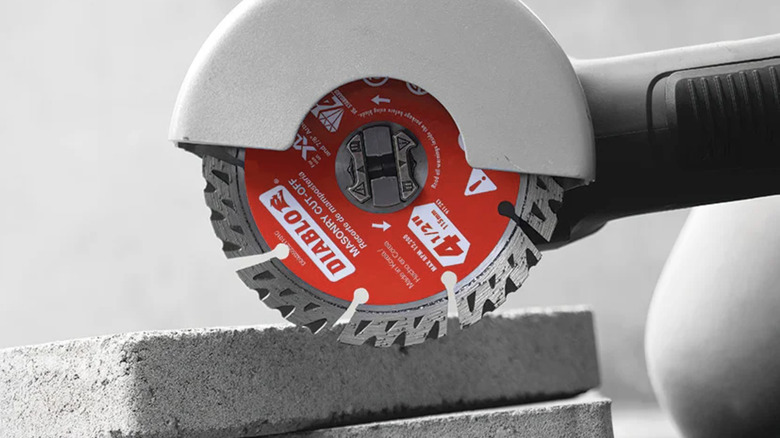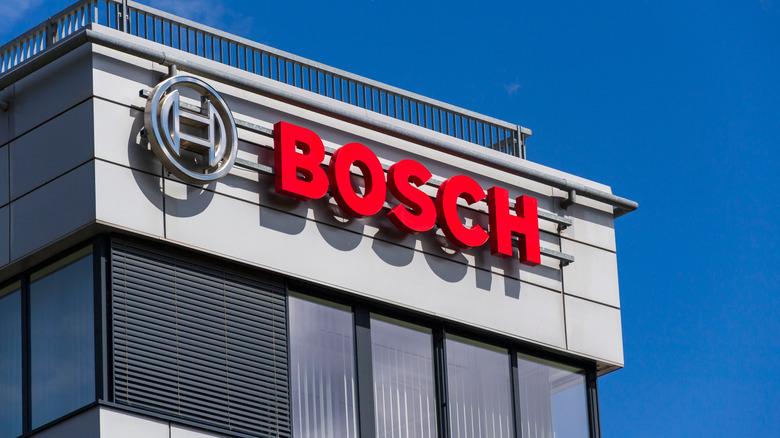Who Makes Diablo Tools? (And Is It The Same Company That Makes Bosch?)
Diablo Tools has come a long way since it was founded in 2000. It's not one of the major power tool brands on the market, but it has established a name for itself. However, you would be surprised to know that Diablo is owned by the same company behind Bosch. Apparently, although Diablo Tools started as a brand under the Milan-based Freud Group, known for producing high-performance woodworking and cutting accessories, it eventually became a division of the Robert Bosch Tool Corporation — a subsidiary of the global technology and engineering powerhouse Robert Bosch GmbH, or simply Bosch.
Before Bosch acquired the Freud Group in 2009, the latter produced blades and accessories for its Freud and Diablo brands in Udine, Italy. After the acquisition, Bosch retained the same manufacturing facilities for the two brands. At the same time, the company banked on Diablo to strengthen its hold on the professional tools and accessories market after gaining access to Diablo's proprietary technologies, such as their TiCo carbide and Cermet II blends. The former is a special combination of titanium and cobalt for cutting tools and accessories, while the latter is a specialized ceramic metallic tooth blend for stainless steel products.
Technically, one could say that Bosch and Diablo are part of the same corporate family, even though they serve different roles and target different market segments. Bosch remains a major power tool brand, while Diablo retains its solution-oriented branding for a niche focused on premium blades and accessories for trade professionals.
Diablo Tools you can buy and where to get them
Under Bosch's tutelage, Diablo Tools focuses on targeting contractors, woodworkers, electricians, and other skilled tradespeople with its cutting and drilling accessories. However, even regular homeowners are welcome to use its industrial-grade products. Interestingly, despite Diablo's extensive lineup and in the face of stiff competition from other brands, Bosch has seemingly rebranded some of its products to carry the Diablo logo — a surprising move considering Bosch makes its own power tools and accessories, while Diablo manufactures its own offerings.
Outside its relationship with Bosch, Diablo's power tool accessories have gained a solid following through the years thanks to its proprietary design and technologies. For instance, its circular saw blades are widely recognized in the industry for their cutting precision, extended life, and anti-vibration design. Diablo's reciprocating saw blades are also lauded for cutting through tough materials like metal, wood with nails, and even demolition projects with ease. Additionally, its SDS-Plus and SDS-Max hammer drill bits offer superior impact resistance, while its oscillating multi-tool blades provide versatility for flush cuts and plunge cuts in wood, plastic, or metal.
Another standout entry in Diablo's lineup is its router bits and Forstner bits, which guarantee clean and precise cuts in hardwoods and softwoods alike. Interestingly, Diablo does not have a means to directly sell products to customers. It simply relies on various physical and online retailers, including The Home Depot, Ace Hardware, ACME Tools, White Cap, Tool Doctor, ToolNut, and Ohio Power Tool.
Other brands Bosch owns (and why so many tool brands are connected)
Bosch may be mostly known for its namesake line of power tools and accessories, but the German conglomerate actually owns a vast portfolio of specialized brands. Aside from Diablo Tools and Freud, Bosch manages similar brands, such as Actron, Dremel, Rolatape, RotoZip, Telex, and Vermont American, among others. Robert Bosch Tool Corporation's acquisition strategy mirrors the industry-wide trend of bigger brands merging and acquiring smaller brands to secure their position in various market segments. By buying up niche brands, the bigger companies reduce their competition, expand their reach, and gain technological advantages.
The acquisition of Diablo and Freud via the Freud Group in 2009 exemplifies this strategy. Instead of developing similar technology in-house, Bosch opted to tap into an already thriving company known for cutting-edge tool accessories. If you're thinking that Diablo got the short end of the stick, that is actually not the case. Diablo received global distribution and R&D support, while Bosch gained high-performance accessory lines to pair with its tools.
Other major brands that utilize the same strategy are Stanley Black & Decker and Techtronic Industries (TTI). Stanley makes its power tools, but it also owns a massive roster of similar brands, including Craftsman, DeWalt, and Black+Decker. Meanwhile, Hong Kong-based TTI makes Milwaukee Tools and licenses the Ridgid and Ryobi names for cordless tools. All these acquisitions explain why so many tool brands offer almost the same lineup of power tools and accessories.


